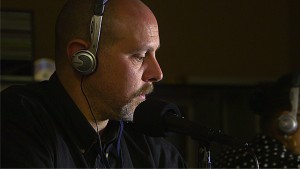Recently, as we prepare for Christmas, I read a reflection that said that we are living times of mercy. It said that we are living the promise that God made to Abraham – this was God’s proposal to our human condition: To give us his mercy. And as a response to God’s promise, Mary said “yes” and so began the consummation of the “mercy” plan of salvation. We are living that plan today. I guess that’s why it makes sense that the Year of Mercy began on a Marian feast, the Feast of the Immaculate Conception, for already in God’s plan, His great work of mercy was being put in motion with Mary’s conception. (The same could be said about all the events in the Old Testament, but we can’t say that in the plan of salvation, Mary’s “yes” was pretty important!)
I am very excited about this year of Mercy because there is so much that we can do that has to do with mercy. It reminds me of the Year of Faith – there were all kinds of things we could do to learn about and grow in Faith. The same could not be said about the Year of St. Paul or the Year for Consecrated Life. Not that those were not good years – and I did learn a lot about St. Paul and did celebrate people who live consecrated lives – but it was not quite the same for organizing weekly activities.
Mercy however, is something we can practice and need to practice. Before we begin with mercy activities, there are two things about mercy that we must understand.
- Mercy is not compassion or pity. You can have compassion for someone who is suffering – and we should – compassion means, “To suffer with”. But for someone to deserve mercy they have to have done something wrong. They have to have trespassed or they owe a debt that has to be paid. In order to receive mercy, you have to be guilty.
- The only person that can offer the guilty person mercy is the one to whom the offence was committed and has the authority to offer justice. I cannot offer mercy to someone who has not offended me or trespassed against me. I can only offer mercy to someone who owes me something and giving them mercy means that I am forgiving that debt.
This is why God offers us mercy. We have trespassed. But He is willing to, not only forgive the debt, but actually pay the debt for us. This is why the greatest act of God's mercy is set in motion with Mary's conception.
As we begin this Jubilee Year of Mercy, remember that practicing compassion is good, but it is not mercy. For someone to deserve mercy they have to be guilty and they have to have offended me in order for me to be able to offer them mercy. And this is where we begin: Who are the people in your life who “owe” you something and whom you are unwilling to let go?
Come back
next week as we look at the significance of opening a door of mercy.
Every week, Deacon Pedro takes a particular topic apart, not so much to explore or explain the subject to its fullness, but rather to provide insights that will deepen our understanding of the subject. And don’t worry, at the end of the day he always puts the pieces back together. There are no limits to deaconstructing: Write to him and ask any questions about the faith or Church teaching:
[email protected]
